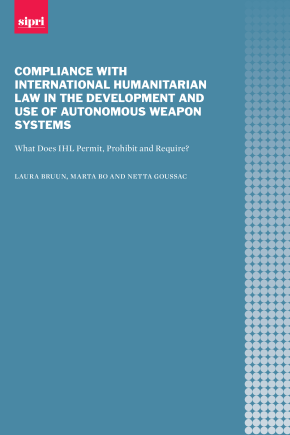Compliance with International Humanitarian Law in the Development and Use of Autonomous Weapon Systems: What does IHL Permit, Prohibit and Require?

It is undisputed that the development and use of autonomous weapon systems (AWS) must comply with international humanitarian law (IHL). However, how IHL rules should be interpreted and applied in the context of AWS remains, in some respects, unclear or disputed. With a particular focus on human–machine interaction, this report aims to facilitate a deeper understanding of this issue. Informed by an in-person expert workshop that SIPRI convened in November 2022 and contributions to the international policy discussion on AWS, the report maps areas of common ground and identifies aspects that warrant further clarification concerning what key rules of IHL, particularly those guiding the conduct of hostilities, permit, prohibit and require in the development and use of AWS. In doing so, the report provides a baseline for policymakers to advance discussions around what types and uses of AWS are (or should be) prohibited or regulated under existing IHL.
1. Introduction
2. What does IHL permit with respect to reliance on autonomous functions in targeting-related decisions and judgements?
3. What does the IHL rule on indiscriminate attacks prohibit in the development and use of AWS?
4. What does IHL require with respect to knowledge, foreseeability, care, and precautions in the development and use of AWS?
5. Key findings and recommendations


